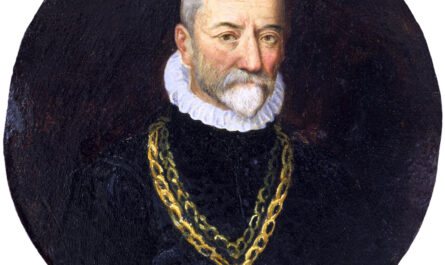American Institutions and Their Influence is an excellent study in the nature of American democracy, as well as an outline of what the country looked like in the first half of the nineteenth century. There were real issues facing the nation, but there were also certain traits that made the American people more able to evolve and address those problems.
I enjoyed seeing what aspects of the American character stood out to a foreigner. It is interesting that he spoke about independence and confidence, to a degree. Independence is an inherently American trait because the country was founded upon it. The colonists found themselves across an entire ocean from their homes, civilization, and commissioners. They had no choice but to figure out how to live here on their own devices. They set up a local governments to keep themselves in order, and to punish injustice. Everyone pitching in, as I gather from this text, was more of an American concept than a universal one. It seems, from this text, that the aristocratic system in France accustomed the population to accept whatever they were given. To accept that their employment status was predestined; that their freedom, wealth, and prosperity was not in their own hands, but that of aristocrats who were wiser and more qualified to make such decisions.
In the final chapters, de Tocqueville revisits his thesis on the defining aspects of American democracy,
“All the causes which contribute to the maintenance of the democratic republic in the United States are reducible to three heads:
I. The peculiar and accidental situation in which Providence has placed the Americans.
II. The laws.
III. The manners and customs of the people.”

Having defined these causes, we will here look at the third cause, manners and customs, which can be further divided into three categories. These are the influence of Christianity and the values of independence and equality.
How Christianity, though not an official institution, affects political and daily life in America
De Tocqueville speaks about the role of religion in everyday life in America, observing that the Constitution and founding laws were built from an understanding of Scripture and God’s laws as the basis of morality. Though we have no state religion, Christianity’s morals were at this time, making a significant impact on the daily lives of the majority of Americans, that it effectively maintained order through the country. Along with basic morality concerning murder, theft, adultery, and interactions of Christians with other people, Scripture asserts that each individual is a unique person possessing rights and dignities only common among humans. These characteristics result in a population whose custom was to honor everyone as a unique creation, deserving of dignity and responsible for their own actions and consequences.
“In the United States religion exercises but little influence upon the laws, and upon the details of public opinion; but it directs the manners of the community, and by regulating domestic life, it regulates the state.”
“Religion in America takes no direct part in the government of society, but it must nevertheless be regarded as the foremost of the political institutions of that country;”
Christianity places a great emphasis on the family structure of the home. It is from this structure that government derives it’s authority. Because each household was structured by the family, and local government structured around the family, the uniformity of municipal government spread easily. This resulted in a population whose local government, together with state government was all based ultimately on Scripture and laws based more or less around Christian doctrine. Implicitly, standards of Christian morality formed the foundation of American democracy.
Being productive and the importance of each person working for themselves are also strong aspects of Christianity. This imperative to work diligently, combined with the assertion that every person is equipped to choose for himself the best, most fulfilling line of work to pursue forms the foundation of American democracy, as well as capitalism. These hallmarks of Christianity, freedom of choice and the confidence that everyone can and should decide what is best for themselves, have in turn become central to American democracy.

Why equality and independence are the defining characteristics of American democracy.
Indeed, freedom of choice is so central to both Christianity and democracy, it is difficult to determine where one stops and the other begins. As de Tocqueville puts it,
“The Americans combine the notions of Christianity and of liberty so intimately in their minds, that it is impossible to make them conceive the one without the other:”
“That Providence has given to every human being the degree of reason necessary to direct himself in the affairs which interest him exclusively; such is the grand maxim upon which civil and political society rests in the United States.”
Because we are all capable of deciding our own will, as well as to plan and weather the journey, we should be free to do just that. Additionally, people have the opportunity and responsibility to treat others with respect for their own choices as well. The doctrine of freedom, both in democracy and Christianity, affirms the right and ability of each person to choose their own path in life. This is the difference between America and every other country on earth, especially at this time. American democracy places the fate of the American people in their own hands, on personal, local, and national levels.

This concept of “for the people, by the people” was new, strange, and of keen interest to the Europeans. De Tocqueville compares the American sense of independence and enterprise with that of European monarchies and aristocracies. Democracy is fundamentally different in that it places every citizen on an equal footing within the context of government and justice.
America was in the unique position of being formed entirely new, not having a government in place to abolish or modify. The founding fathers and colonists desired to make their nation fundamentally different in the form the government takes, and how it influences the daily lives of citizens. Their independent spirit is central to the identity of the country. The states ruled over themselves before organizing the federal government; the nation was born from independent adventurers.
“The American, taken as a chance specimen of his countrymen, must then be a man of singular warmth in his desires, enterprising, fond of adventure, and above all of innovation. The same bent is manifest in all that he does; he introduces it into his political laws, his religious doctrines, his theories of social economy, and his domestic occupations; he bears it with him in the depth of the backwoods, as well as in the business of the city.”

Conclusion
De Tocqueville doesn’t set out to define democracy as a prescribed form of government, but aims to examine the uniquely American traits of the institution, and offer insight as to how its principles may be introduced into French society. He understood that because of the background of Europeans, and the fact that they expected different things from government, their style of democracy would be different. He also warned against potential dangers of democracy. All in all, though, it seems he was favorably impressed by the improvements democracy could affect both in the United States and Europe. Independence and equality being the fundamental changes in how the people view themselves, I found it fascinating that he identified these as the hallmarks of American democracy. This text was eye-opening toward the differences in American character from our European counterparts, and it made me very curious to learn more about the nature of American character since it was written.
Ed. note: This post is part of a series looking at the three schools of philosophy for perspectives on navigating our modern world. Inspired by Emerson’s “The American Scholar,” we are exploring timeless wisdom which endures to inform our approaches to learning, relationships and leadership.Click here for all the posts in this series.




